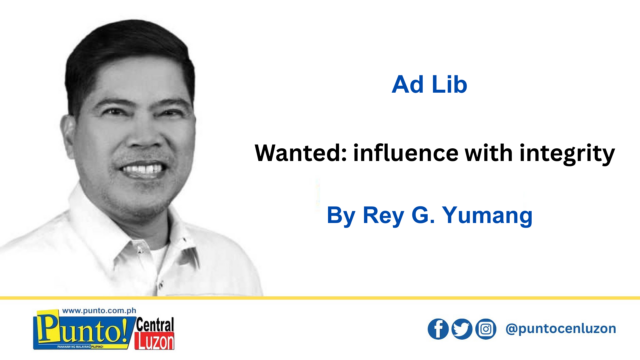IN TODAY’s era where social media influencers command the attention of millions, a single post or video blog can make or break reputations—sometimes unfairly so.
Two recent incidents in the Philippines highlight both the power and danger of this influence. One case involved a supposed loyal Starbucks customer identified as JP Abecilla, who experienced having his name misspelled by baristas. He felt disrespected, left his order and walked out and then used his platform to dramatize and express his disappointment over the incident what many saw as an honest mistake.
Another involved TikTok influencer Euleen Castro, more popularly known as the “Pambansang Yobab,” who faced online backlash after her harsh comment on the food she ordered at Coffeebreak, a café in Iloilo. In her food review video, Castro described the food as “tab-ang” (bland). She went on, pointed to the dishes and said, “Out of all of you, walang masarap.” She ended the review by gesturing toward the dishes again and remarked, “Ang dami niyo diyan, walang masarap sa inyo, ni isa. P*ta!”
These two incidents raise important questions: At what point does feedback cross the line from honest critique into damaging disparagement? Are influencers truly experts—or are they merely loud voices seeking clout?
Let’s face it. While it is true that social media has democratized content creation, it has also blurred the lines between opinion and expertise. Influencers, in their pursuit of views and viral fame, often resort to sensationalism. The result? They forget the real-world consequences of their posts. A negative review made with tact and clarity is one thing; public shaming, exaggerated reactions, sarcastic ridicule and review laced with expletives are another.
Businesses, especially small local ones, invest time, money, and passion into what they do. A single tactless review—often made without full context or professional training—can lead to lost income, employee layoffs, and long-term damage to brand reputation.
In response, a Starbucks spokesperson stated that they do not direct their partners to misspell names and emphasized their commitment to customer satisfaction. Many Starbucks customers shared their own experiences and never made a mountain out of a molehill of a misspelled name. Many found humour in it and shared the countess times they were christened with new names and even contemplated on taking a new alias.
On the other hand, Coffeebreak stated on their official Instagram that it will remain “committed to providing a warm, satisfying experience to every guest and to continuously grow from feedback shared with sincerity and respect.”
It’s crucial to differentiate between constructive criticism and outright bashing, or even an exaggerated and emotionally charged opinion that lacks nuance. Honest feedback should be rooted in fairness, with the intention to inform and help, not to shame or destroy. Don’t get me wrong. I am all for allowing consumers to exercise their right to speak up, but influencers must also carry the responsibility of wielding their platforms with integrity. Just because they have a large following doesn’t mean they are qualified to be a food critic or industry expert.
We must all call for a culture of responsible reviewing—one that respects the people behind businesses. Thoughtful, balanced feedback can spark improvement. But reckless posts driven by entitlement and the hunger for internet fame can irreparably harm lives and livelihoods.
In this digital age, there is a pressing need for responsible criticism. The message is plain and simple: Speak up, but do so with care. Influence should never be used as a weapon to destroy but an instrument to build.





